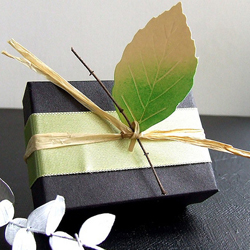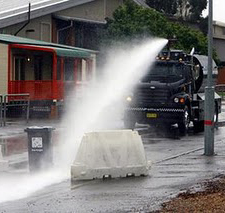
In addition, the executive council received regular security briefings from the regional security officer (RSO) at the embassy. In times of particularly high tensions (which happened about every six months in those days) we would meet weekly at the embassy. We helped give the RSO information on how the people in the streets were behaving. Whether there was a run on the banks. (The first thing that Saddam Hussein had done in 1990 was clean out the banks.) That kind of thing.
As I settled back in after my vacation, we were operating under a particularly alarming warden’s notice from the embassy. Unspecified threats against the American community had been received. U.S. organizations such as ours were recommended to be on heightened alert. Individual Americans were requested to stay out of the public’s eye and to avoid gathering in groups. The British embassy kindly issued a similar notice to its citizens, and advised them to try not to be seen with Americans. I thought that was awfully sporting of them.
So, that was the situation at the end of July. As was my habit then, I came into work early that morning. Our Pakistani driver-cum-office boy, Mohammed, was already working. The other office workers were straggling in, my children’s classes had begun, and I had logged on to the Internet and was checking the morning news when Mohammed approached me.
“Mr. Tony?”
“Yeah, Mohammed. What’s up?”
“There is a package on the kitchen table. It has no name, no card.”
At that, my ears perked up. OSAC recent training on detecting letter bombs and dealing with strange packages immediately came to mind. I was young and enthusiastic. But I also had a warden’s notice and probably thirty children upstairs to think about.
I went back to the kitchen, and there it sat—a nice, small, gift-wrapped package, about six inches by eight inches. No card. Nothing. Just a package. The country director was on vacation.
It was my call.
I made a command decision.
Going back to the front desk, I called Pat Capriglione, the assistant RSO at the embassy. His response was immediate and to the point. He, or someone, would get back to me in five minutes. Of course, the fact that his wife was teaching in a classroom fifteen feet above my head probably accounted for some of his haste.
Sure enough, in less than five minutes, I received a phone call from a colonel in the Kuwaiti Police. It turned out that he and I knew each other. His son was just fifteen feet above me as well. In near perfect English, he asked a rapid fire series of questions.
What size was it?
What color was the paper?
How much did it weigh?
Since we had been taught at the seminar not to pick suspicious objects up, I had refrained from touching it. Technically, it could have had a pressure-sensitive trigger. I didn’t mention this fact to the colonel, but as I spoke to him, I looked up to see reliable Mohammed carrying the package into the reception area. So much for pressure-sensitive triggers.
Mohammed assessed its weight as heavy for the size of object it was. I didn’t second guess him. No way I was going to touch it. I informed the colonel of Mohammed’s assessment. He advised me to have Mohammed place the box as far from the building as he could and still be on our property. Then, he told me to move the children and all personnel to the opposite of the building. The bomb disposal unit was en route.
Fifteen minutes later, the compound was surrounded by police and explosive ordnance detail vehicles. The EOD team went to work immediately. They x-rayed the package. Bad news. While they couldn’t detect any explosives, they did identify transistors, wires, etc. Nothing that ruled out a bomb.

With a snap and a tremendous BANG!, the cannon exploded, the blast echoing off the buildings around me and pounding my eardrums. Two of the EOD team rushed to investigate the remains of the package. After a moment, they motioned me and the colonel over. My mysterious package was a transistor radio. Later, I learned that the instructor who had received it from a student had taken the card and left the radio. Boy, did my face turn red!
Now, back in the states, my calling the EOD team in would have been universally ridiculed. Overreaction would have been the cry. I would have been greeted by suspicious package jokes at least every other day. I would never have lived it down. But it speaks to the seriousness of the situation in Kuwait that I was universally acclaimed for my caution and willingness to go out on a limb in the interest of safety. The parents were pleased that I had taken the possibility of a threat seriously rather than treat it in a cavalier fashion.
And, hey! It got me a free ticket to the next Marine party at the embassy. In allegedly alcohol free Kuwait, that was like turning 21 all over again.
Package image via balanced.crafts
When Tony Hays isn’t traveling the world, teaching students, and adopting puppies, he takes time out to write the Arthurian Mystery series from Tor/Forge.
